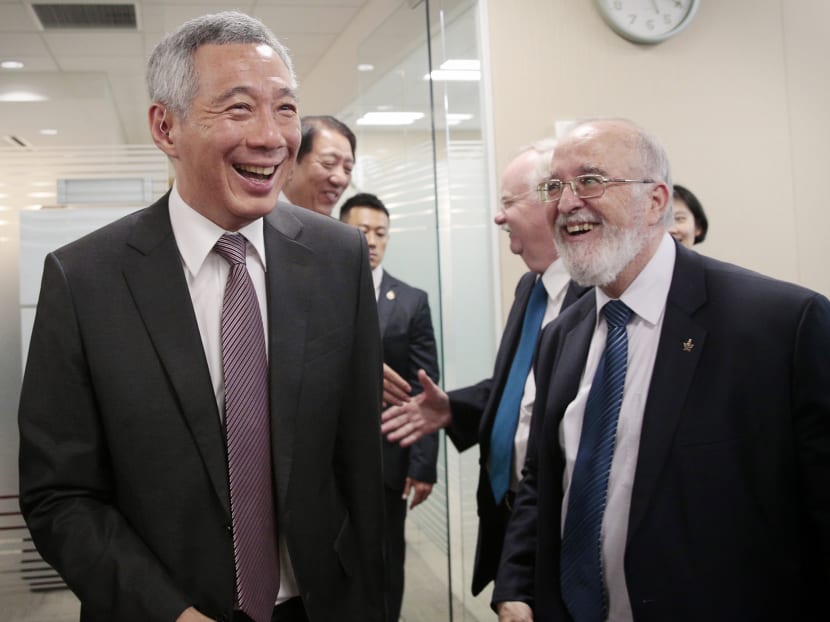Billions poured into research have brought value: PM
SINGAPORE — The Republic has derived value from the billions pumped into research, innovation and enterprise, said Prime Minister Lee Hsien Loong today (Jan 8) as he announced that the Government is sustaining its spending at about 1 per cent of gross domestic product.

PM Lee Hsien Loong at a press conference to announce the RIE2020 Plan and take media questions on Jan 8, 2016. Photo: Jason Quah
SINGAPORE — The Republic has derived value from the billions pumped into research, innovation and enterprise, said Prime Minister Lee Hsien Loong today (Jan 8) as he announced that the Government is sustaining its spending at about 1 per cent of gross domestic product.
Responding to a question on whether Singapore was research-efficient at the announcement of the S$19 billion Research, Innovation and Enterprise 2020 (RIE2020) plan today, Mr Lee said investing in research is “what developed countries do”.
“It’s not a small sum but it’s an investment in our human talent, in the possibilities of science and what it can do to change our lives and, really, in our understanding of the world and human knowledge, which can be applied in many areas over many, many years,” he said.
“Are we getting value out of it?” he added. “I think so far, as far as we can tell — and this is talking to many critical observers who have experience managing science and R&D systems — I think we have done well in building up an ecosystem, a community.”
Also, scientists who have come to Singapore have helped develop a “significant core of Singaporeans” who have gone into research and innovation — people who might otherwise not have gone into research or who would have gone overseas, he said.
“So, overall, I’d say we have got value, we’ll work harder at it, we’ll continue to maintain this level of investment.”
Since the first National Technology Plan 1995, Singapore has to date spent or committed S$58.65 billion on research and innovation until 2020. But in recent years, the Republic’s weaknesses in innovation output have been highlighted in international studies.
In 2013, Singapore fell from third to eighth place in the Global Innovation Index produced by INSEAD business school, the World Intellectual Property Organization and Cornell University, due to a change in methodology to place greater emphasis on innovation output. Last year, Singapore placed 7th overall in the same index, but 20th for innovation output.
Deputy Prime Minister Teo Chee Hean, who was also present at the announcement today, said research investment is essential for a knowledge-based economy.
“Otherwise we’ll all be spending our time using other people’s technology, making things using other people’s technology, making things for other people,” said Mr Teo, who is chairman of the National Research Foundation. “So this is really an investment in our own future.”
RIE2020 seeks to strengthen the link between science and application, which means guiding the science without foreclosing possibilities that may not look promising initially or lucrative immediately, said Mr Lee.
Overseas members of the Research Innovation and Enterprise Council said Singapore’s clear commitment to the cause is important. Funding predictability and the commitment to spend about 1 per cent of GDP on research sends the message that it is okay to undertake research projects that may take some time to come to fruition, said Mr Richard Friend, Cavendish Professor of Physics at Cambridge University.
While the United States has a more established research scene, it “deals with one-year budgets” and lacks clarity on what is to be accomplished over a five-year period, said Professor Robert Brown, president of Boston University.






